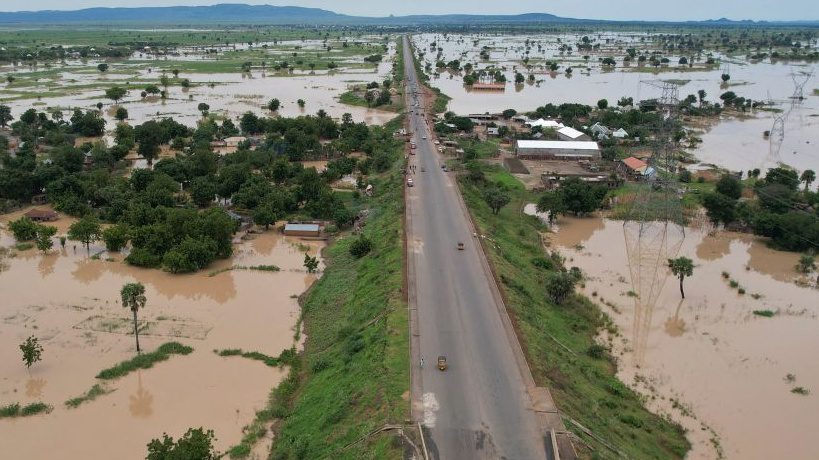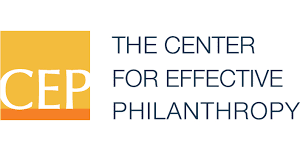By Juan Ignacio Marín
Degrowth is a theory, a movement, and a practice with a long and distinguished history. The excellent Wikipedia article (worth consulting) starts this way:
Degrowth or post-growth economics is an academic and social movement critical of the concept of growth in gross domestic product as a measure of human and economic development. Degrowth theory is based on ideas and research from a multitude of disciplines such as economics, economic anthropology, ecological economics, environmental sciences and development studies. It argues that the unitary focus of modern capitalism on growth, in terms of monetary value of aggregate goods and services, causes widespread ecological damage and is not necessary for the further increase of human living standards. Degrowth theory has been met with both academic acclaim and considerable criticism.
Degrowth theory’s main argument is that an infinite expansion of the economy is fundamentally contradictory to the finiteness of material resources on Earth. It argues that economic growth measured by GDP should be abandoned as a policy objective. Policy should instead focus on economic and social metrics such as life expectancy, health, education, housing, and ecologically sustainable work as indicators of both eco-systems and human well-being.Degrowth theorists posit that this may increase human living standards and ecological preservation, even while GDP slows down or decreases. Degrowth theory is highly critical of free market capitalism, and it highlights the importance of extensive public services, care work, self-organization, commons, relational goods, community, and work sharing.
Juan Ignacio Marin is a young Spanish-Costa Rican writer who has made a deep study of the degrowth literature. At my request, he wrote this article on the prospects and challenges of degrowth in Costa Rica, which, in some ways, is an ideal place to explore how degrowth practices might gain some traction.
All the best, Michael Lerner
[Co-Founder, Commonweal, Omega]
Costa Rica is quite a unique country in the world. Its on the top 20 list of most biodiverse countries in the world and It only has 19,700 square miles (51,100 square kilometers) in area, comparable to the size of Denmark or West Virginia in the US. With that small amount of land, though, there are a dozen of ecosystems, including low land tropical rainforest to highland mountain rainforest. Its 25% of the land and water of those ecosystems are protected as national parks or wildlife reserves.
Costa Rica is also an example of renewable energy. According to the country’s National Center for Energy Control, Costa Rica has been running on more than 98% renewable energy since 2014. 67,5% of this energy comes from hydropower, but also wind power generates 17%, geothermal sources make up 13,5% and biomass and solar panels comprise 0,84%.
As a smaller nation with a population of only 5 million people, were at least 79% of the population lived in urban areas, and 20% lived in rural areas, renewable energy benefits both, rural and urban populations as 100% of the households have access to electricity generated from renewable sources.
Additionally, 82% of the Costa Rican population has access to clean drinking water, even though 18% (mainly indigenous, afro descendants and migrant workers) lack access to drinking water due to a shortage of infrastructure and government support.
In 2015 Costa Rica was ranked as the healthiest country in Latin America and 24th in the world. The country has one of the highest average life expectancy at 80 years.
According to the human development index (HDI), which is the index used by the United Nations to measure the progress of a country, Costa Rica´s HDI in 2019 was 0.810, which places the country in the very high human development category and in 62nd place out of 180 countries and territories.
One key factor that indeed has helped Costa Rica achieve these significant characteristics was the elimination of the military. In 1948, Costa Rican President Jose Figueres, commonly known as “Don Pepe” announced that the nation’s former military budget would be refocused specifically on healthcare, education, and environmental protection. This decision freed up millions of dollars which are now invested in social programs, renewable energy generation and environmental protection.
Since the 1980´s the Costa Rican government implemented policies to protect its natural forests. During the 1990 the country created the Payments for Environmental Services (PES) program as part of protective policies that combat deforestation by helping landowners receive direct payments for ecological services when they adopt techniques that do not negatively impact the environment and maintain quality of life. These services include clean water, irrigation, energy production, biodiversity and scenic beauty, which allows farmers to earn an extra income even during unprofitable seasons.
Even though Costa Rica has committed to eliminating fossil fuels and becoming the world’s first decarbonized state, the country has a big and messy problem in the transportation sector. Much of its infrastructure, including cities, is in poor condition. The government doesn’t offer solutions to solve the public transportation crisis and people are relying on cars as their main transportation option.
According to Costa Rica´s State of the Region report, there are 287 cars per 1000 people. Less than 2% of these cars are hybrid or electric, meaning that the country still demands big amounts of fossil fuels to fulfill its transportation needs.
Costa Rica is no exception to the main discourse of economic growth. Political leaders continue to talk about economic growth, production or even consumption as the essential basis for consolidating the association of social welfare with money.
The concept of development as a national objective, through a frenzied competition for creating new “needs”, producing more, stimulating more demand, and generating growth, is a belief that is shared by all Western societies. In this case, Costa Rica is no exception to the belief that economic growth is a key principle to achieve development as a national objective.
But also Costa Rica is no exception to the alternatives that defend a new post-capitalist scenario. Youngsters and also academic professors are starting to share the values of degrowth as a way of gathering consciousness of the need for a substantial change.
Degrowth has been gathering popularity in the last few years. In 2023 for example the European Parlament reunited activists, policymakers and NGO representatives to talk about degrowth as an opportunity for a substantial change in the current status of polycrisis that the planet is facing.
But is degrowth an alternative for Costa Rica´s green vision? One of the advantages that Costa Rica has for impulsing degrowth ideals is its health and educational systems. Yes, inequality is without a doubt one of the main problems of this small country, especially meaningful if you consider the income levels between the cities of the central valley and the coast. But Costa Ricans do have a sense of quality of life that doesn’t only involve income. The popular saying “Pura Vida”, which means pure life and it’s also the country’s logo to the world, represents the precise word that connects the commitment of Costa Rica to relying on what nature has to offer.
If degrowth involves a change in the quotidian life of people associated with a way of living that is friendly to the environment, the “Pura Vida” argument could be a reflection of what degrowth is all about. The saying could be a firm contraction against the values of capitalism and its obsession with the generation of capital. “Pura Vida” reflects mainly in the elements that generate joy in life. There is no reflection between income and happiness, and with this argument the Costa Rican saying could be a response to the neoliberal logic which resumes that the more we work, the more money we have, and the more material goods we can consume, the happier we will be.
Considering that we have to assume that to have a habitable planet we need to reduce our levels of consumption, specially in Northern countries which are the main responsible of the current climate state, the Costa Rica example could be a positive scenario to take under consideration.
If degrowth represents a dynamic of change, which first seeks to generate awareness of the social and ecological impact that neoliberalism has on our planet, the “Pura Vida” meaning of life could be a first starting point for promoting degrowth values: slowing down and relaxing to enjoy what life has to offer.
On the other hand, Costa Rica still has several challenges ahead to promote an alternative economic model. The country needs to reconsider it strategies and policies based on the increase of economic growth as the main way to fight against poverty and inequality. Let’s not lie, economic growth is important in southern countries, but we cannot forget that the process of development and economic growth is violent in and of itself. Promoting degrowth as an alternative economic model would allow Costa Rica to restructure its society in a more holistic relationship with its green leading image.
Second, Costa Rican society needs to start a conversation about the future and implementation of an alternative economic model. This conversation has to consider that political actors are not the only key principals to produce real change. Gathering social movements and community organizations into the conversation would allow people to understand the importance of creating a new societal change from the local level, where community relations and organizations can start focusing on new strategies for a new degrowth scenario.
Third, Costa Ricans like all other citizens of the world need to understand the need for a substantial change in our daily life routine. We need to assume that we have to reduce our levels of consumption to continue having a habitable planet, and thereby lessen the effects of climate change. Given this point of view, degrowth invites us to reconsider neoliberalism from a vantage point acceptable to our conscious awareness, and through a change in the daily life of people whose way of life is already on good terms with the environment and whose outlook seeks to resolve all that has been abandoned by the ideals of economic growth.



